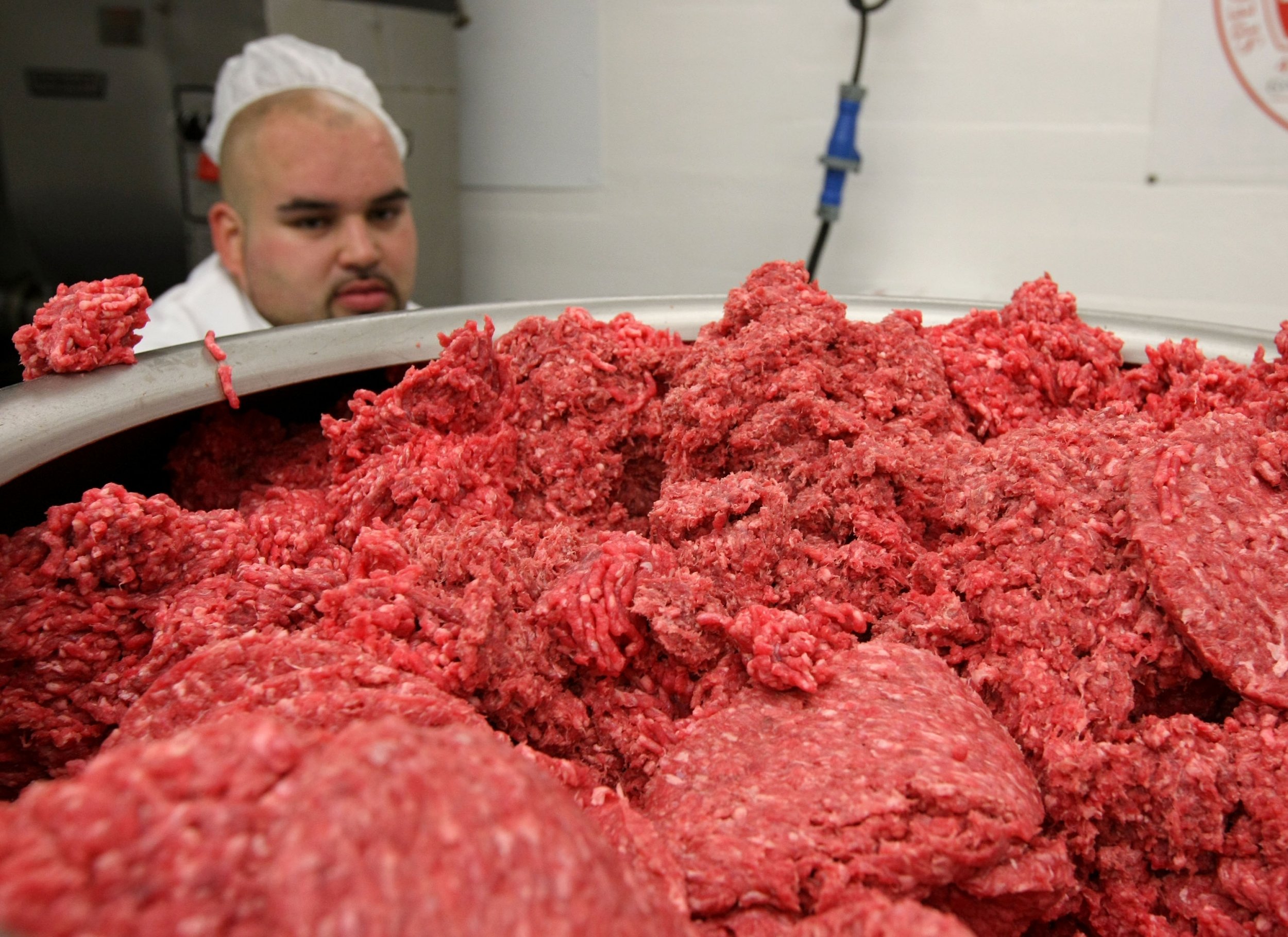
Updated | Meat-eaters take a leap of faith nearly every time they chow down, since there are limited ways to know if what you're eating is actually what the label says.
Now researchers at the University of British Columbia (UBC) want to help consumers avoid mystery meat with a device that can easily and accurately identify when a meat product has contamination, whether it's unsavory body parts, such as intestines, or parts of creatures you'd rather not consume, such as rats and horses. They published a study about the device in a recent issue of Scientific Reports.
The technology is simple enough. It uses a laser-equipped spectrometer that captures energy signals, known as spectra, from molecules—in this case, meat molecules. The spectra create an image of exactly what is inside of the meat.
Because different animal parts have different chemical compositions, each body part produces different spectra. The researchers then identify how much of the meat came from which part of the animal by combining these spectra and comparing them with a pre-established spectra library. As a result, the device can tell users what percentage of the meat came from what animal species and what animal part, with 99 percent accuracy.
Related: Will in vitro meat help put an end to animal suffering?
"The device [the laser-equipped spectrometer] we used in our study was a commercially available one. Our efforts focused on creating the database," lead study researcher Yaxi Hu, a Ph.D. candidate in UBC's faculty of land and food systems, told Newsweek.
At the moment, the team's database has spectra of six different types of offal, or entrails. "Given that there are dozens of other types of adulterants that could be present in beef, there is more work to be done to make the database more complete and be able to confidently analyze commercial product," Hu said.
There are other ways to identify meat contamination, such as DNA testing. But that is complicated and not realistic for every piece of ground meat product. In addition, while DNA testing can tell you if ground beef has pieces of horse or rat in it, it can't tell you if the beef has pieces of beef offal, as this would come from the same animal.
Eating animal entrails will not kill you, as many dishes actually call for these out-of-the-ordinary meat cuts, such as liver pâté and black pudding, a British and Irish favorite, which is made from beef suet (the hard fat of a cow) and pig's blood.
"Offal and lower-grade meat, including horses or rats, are consumed in some parts of the world, and there are people who love eating them," said Hu. "Therefore, we are not too concerned about the safety issues."
Offal products are generally cheaper but can be disguised as more expensive meat cuts and sold at higher prices to buyers. This is when food fraud occurs, and it is what the UBC team wants to prevent.
Related: Boy goes blind after eating only meat, potatoes, and cereal for 'eczema treatment diet'
At the moment, the new meat-scanning device is ready to be used by either government or industry leaders who may want to rapidly screen meat before it even reaches the consumers. However, the researchers aim to one day make it simple and affordable enough to be used by consumers in their homes.
"As soon as we have a library that contains spectral information of more types of adulterants, this method can be applied to the consumer market to test real commercial ground beef," said Hu.
This article has been updated to include a quote from Yaxi Hu.
Uncommon Knowledge
Newsweek is committed to challenging conventional wisdom and finding connections in the search for common ground.
Newsweek is committed to challenging conventional wisdom and finding connections in the search for common ground.
About the writer
To read how Newsweek uses AI as a newsroom tool, Click here.








